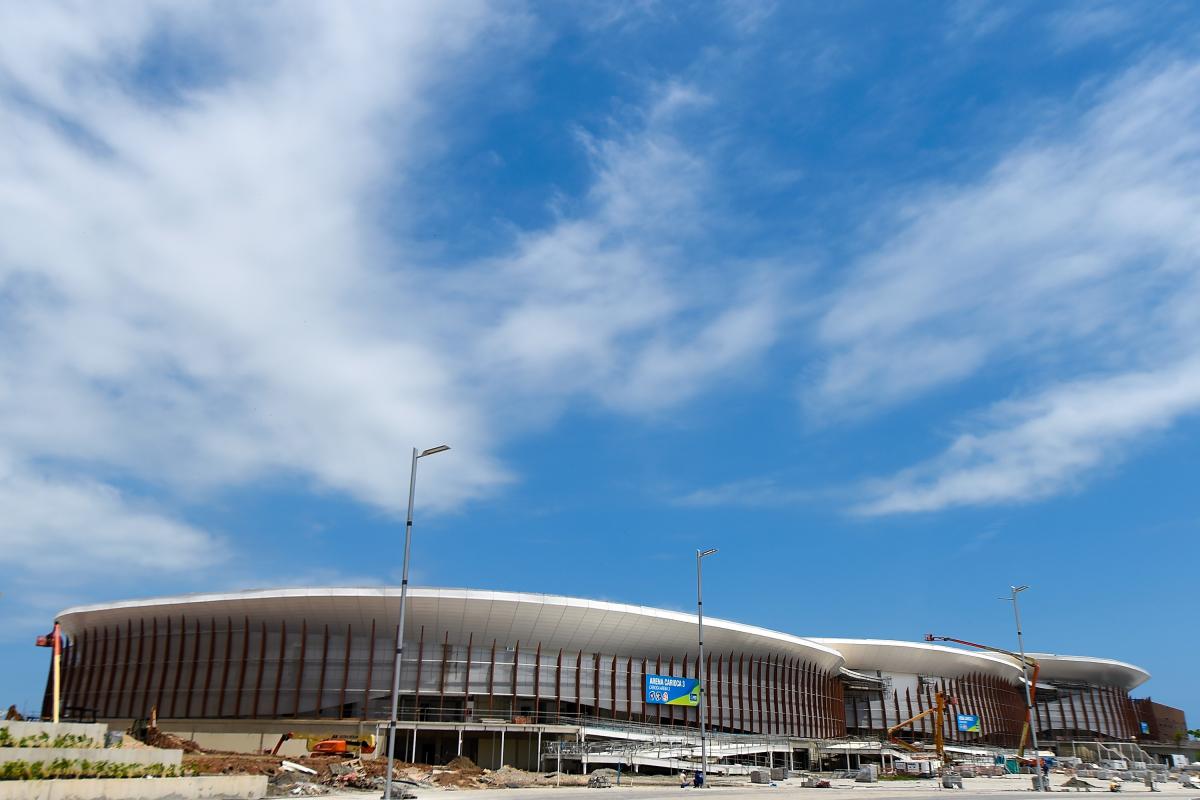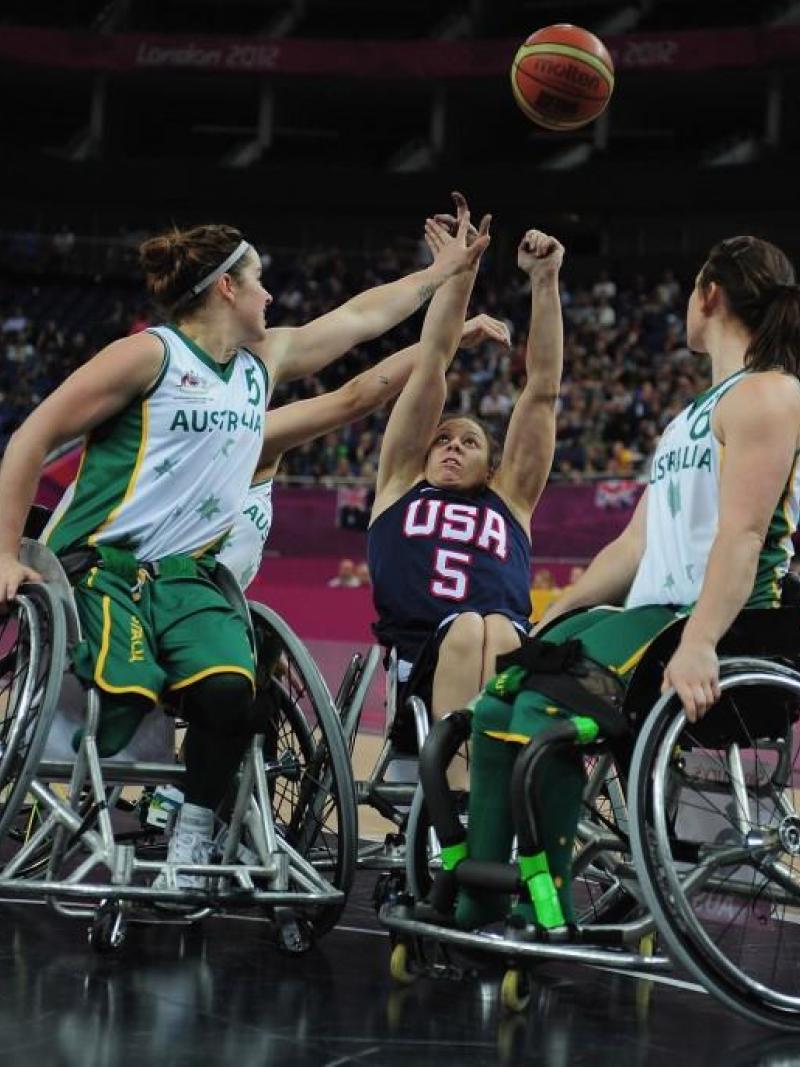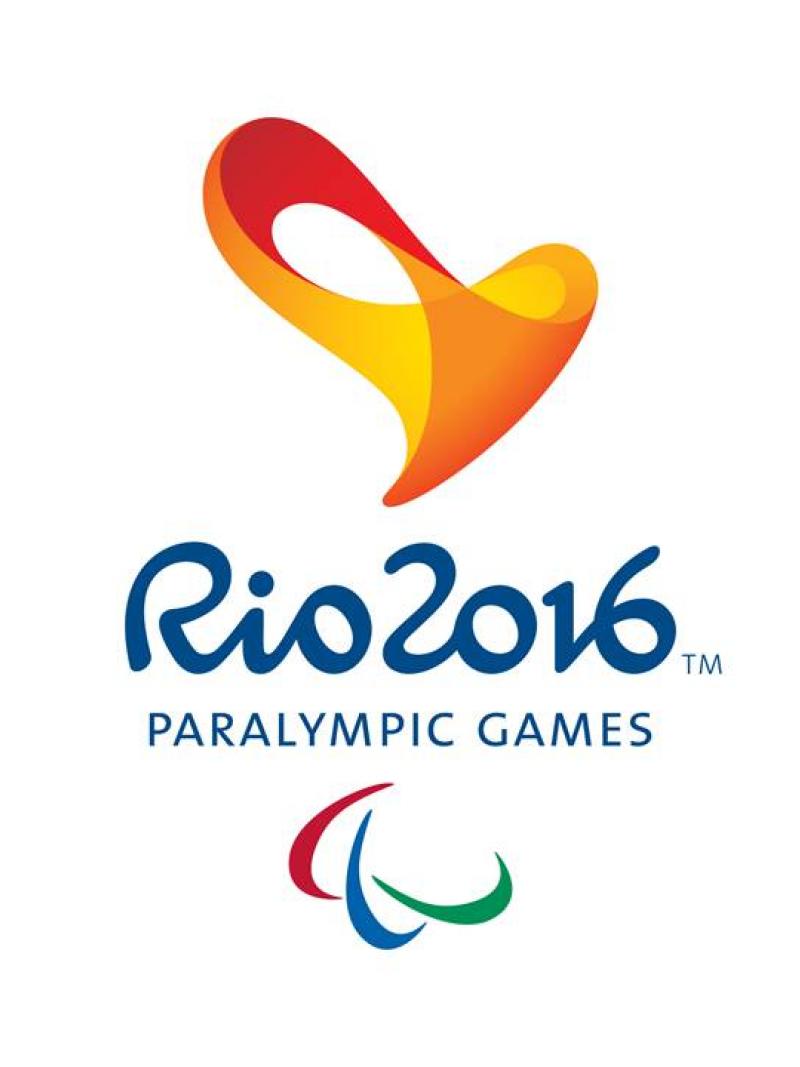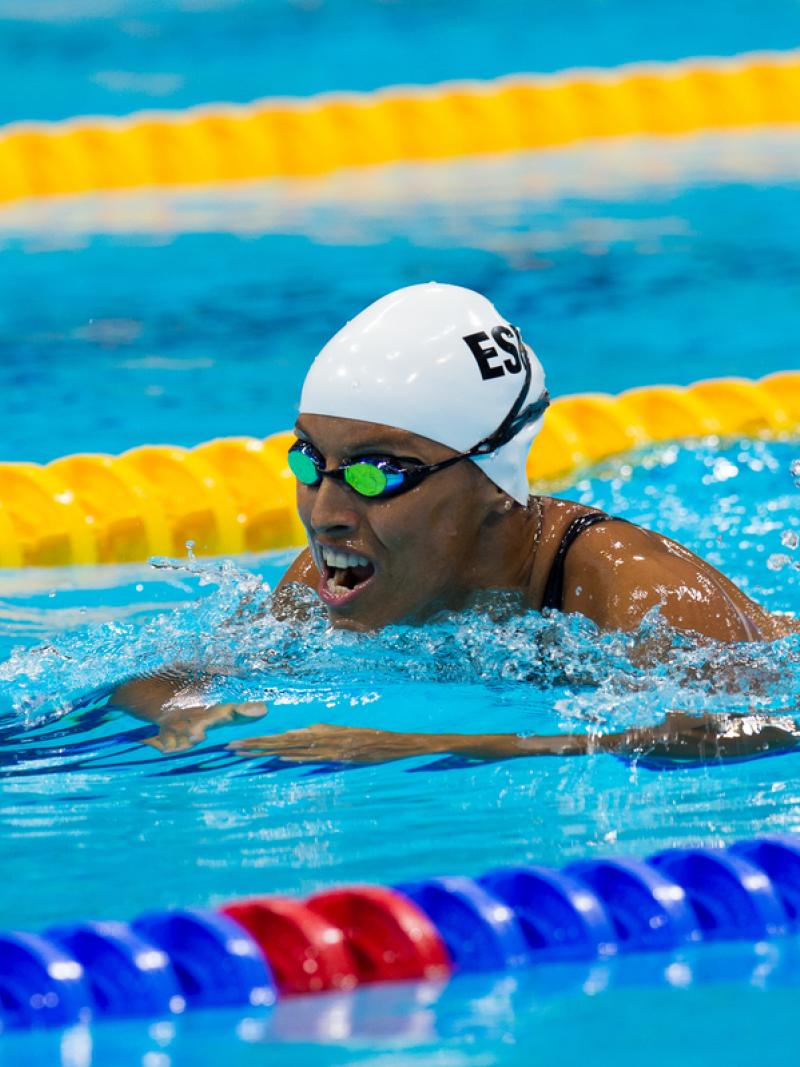Rio 2016 unveils first venue of year
Carioca Arena 1, home of wheelchair basketball and rugby during this summer’s Paralympic Games is the largest in Barra Olympic Park and will host first test event this week. 14 Jan 2016
View of the construction site of the Carioca Arena 1,2 and 3
“The most important thing is that an arena inspires players, and this place makes me want to return to the court.”
Carioca Arena 1 became the first Rio 2016 venue to be unveiled this year on Tuesday (12 January). The 16,000-seat arena, the largest in Barra Olympic Park, will host its first action on Friday (15 January), when the basketball test event begins.
Two members of the Brazilian women’s team who won silver at the Atlanta 1996 Games helped inaugurate the venue and predicted emotional scenes after the curtain comes up.
“Brazilian fans always get very involved in live sport and I’m sure they will create an electric atmosphere during the Games,” said Janeth Arcain. Hôrtencia Marcar. “The most important thing is that an arena inspires players, and this place makes me want to return to the court.”
The first of eight new venues to be inaugurated this year, Carioca Arena 1 will host basketball during the Olympic Games and wheelchair basketball and wheelchair rugby during the Paralympic Games. It will get a taste of the demands of Games-time this month, as it hosts the basketball (15-17 January), powerlifting (20-23 January) and wrestling (30-31 January) test events, followed by taekwondo and wheelchair rugby in February and judo in March.
Carioca Arena 1, which is 33m tall and has a floor-space of 38,000m², has a facade inspired by the mountainous Rio landscape. Construction followed Rio 2016’s sustainability guidelines with features such as metallic covering that reflects sunlight, therefore reducing energy consumption (on air conditioning) during the day. The venue – which has 282 rooms, 49 bathrooms and eight changing rooms – was designed to be accessible for people with an impairment.
The 608m² court was constructed with two types of wood, one for the playing area and another for the out-of-bounds areas. It has a support system that uses rubber shock absorbers to guarantee the best conditions for athlete performance.
Legacy
After the Games, Carioca Arena 1 will form part of the Olympic Training Centre (OTC), along with three other new venues: Carioca Arena 2, the Olympic Tennis Centre and Rio Olympic Velodrome. The OTC will provide top-level facilities for sports including tennis, wrestling, weightlifting, badminton, fencing, taekwondo, judo and athletics, as well as being available for school children and social projects.
An Olympic-standard athletics track and two beach volleyball courts will be added, as well as a dormitory with 166 twin bedrooms for athletes, which will be built from materials used in the nearby International Broadcast Centre. This new post-Games park will also allow Rio to host major international sports events, concerts and exhibitions.
Carioca Arena 3, which during the Games will host fencing, taekwondo and Paralympic judo, will remain intact but become an Olympic Experimental School (GEO in Portuguese) after the Games, with space for 850 full-time students.
Rio mayor Eduardo Paes said: “The main thing we wanted to avoid is white elephants, so everything was planned with the future in mind.”
Sport fans from around the world can now buy their Paralympic tickets for Rio 2016 from authorised ticket resellers (ATRs).
The IPC’s Global ATR is Jet Set Sports, and Rio 2016 tickets and packages can be purchased on the CoSport website.
Residents of Brazil can buy 2016 Paralympics tickets directly from the Rio 2016 website.

 Facebook
Facebook
 Instagram
Instagram
 Twitter
Twitter
 Youtube
Youtube
 TikTok
TikTok
 Newsletter Subscribe
Newsletter Subscribe



